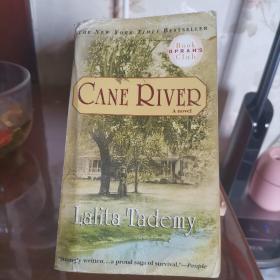
Cane River 凯恩河 英文原版
¥ 68 九品
仅1件
北京丰台
认证卖家担保交易快速发货售后保障
作者Lalita Tademy
出版社Warner Books
出版时间2005-02
出版地USA
印刷时间2005-02
装帧平装
纸张胶版纸
页数543页
正文语种English
上书时间2022-07-24
- 最新上架
商品详情
- 品相描述:九品
- 商品描述
-
内容简介 · · · · · ·
Lalita Tademy's riveting family saga chronicles four generations of women born into slavery along the Cane River in Louisiana. It is also a tale about the blurring of racial boundaries: great-grandmother Elisabeth notices an unmistakable "bleaching of the line" as first her daughter Suzette, then her granddaughter Philomene, and finally her great-granddaughter Emily choose (or are forcibly persuaded) to bear the illegitimate offspring of the area's white French planters. In many cases these children are loved by their fathers, and their paternity is widely acknowledged. However, neither state law nor local custom allows them to inherit wealth or property, a fact that gives Cane River much of its narrative drive.The author makes it clear exactly where these prohibitions came from. Plantation society was rigidly hierarchical, after all, particularly on the heels of the Civil War and the economic hardships that came with Reconstruction. The only permissible path upward for hard-working, ambitious African Americans was indirect. A meteoric rise, or too obvious an appearance of prosperity, would be swiftly punished. To enable the slow but steady advance of their clan, the black women of Cane River plot, plead, deceive, and manipulate their way through history, extracting crucial gifts of money and property along the way. In the wake of a visit from the 1880 census taker, the aged Elisabeth reflects on how far they had come. When the census taker looked at them, he saw colored first, asking questions like single or married, trying to introduce shame where there was none. He took what he saw and foolishly put those things down on a list for others to study. Could he even understand the pride in being able to say that Emily could read and write? They could ask whatever they wanted, but what he should have been marking in the book was family, and landholder, and educated, each generation gathering momentum, adding something special to the brew. In her introduction, Tademy explains that as a young woman, she failed to appreciate the love and reverence with which her mother and her four uncles spoke of their lively Grandma 'Tite (short for "Mademoiselle Petite"). She resented her great-grandmother's skin-color biases, which were as much a part of Tademy's memory as were her great-grandmother's trademark dance moves. But the old stories haunted the author, and armed with a couple of pages of history compiled by a distant Louisiana cousin, she began to piece together a genealogy. The result? Tademy eventually left her position as vice president of a Fortune 500 company and set to work on Cane River, in which she has deftly and movingly reconstructed the world of her ancestors. --Regina Marler
— 没有更多了 —
















以下为对购买帮助不大的评价